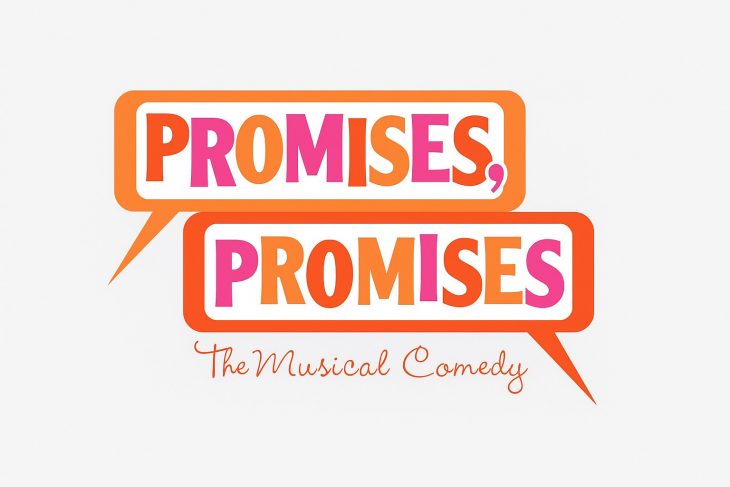
Is a musical that satirizes office politics, romantic entanglements, and corporate hypocrisy worth remembering? Promises, Promises answers with 1,281 Broadway performances, a revival, and a cast album that won a Grammy. Based on The Apartment, the 1960 film by Billy Wilder, the show carved a distinct identity with a modern pop score, biting humor, and choreography that redefined Broadway spectacle. Here are 30 essential facts about this enduring production.
Origins & Concept
1. Based on an Oscar-Winning Film
The show takes its premise from The Apartment, which won five Academy Awards, including Best Picture.
2. Neil Simon Wrote the Book
Renowned playwright Neil Simon brought sharp wit and emotional nuance to the script.
3. Music by Burt Bacharach, Lyrics by Hal David
The legendary pop duo wrote their only Broadway score for this production.
4. A Corporate Satire with a Romantic Core
The plot follows Chuck Baxter, who loans his apartment to superiors for their affairs, hoping for a promotion—until his love interest becomes part of the arrangement.
5. Premiered on December 1, 1968
The show opened at the Shubert Theatre in New York and ran until January 1, 1972.
Musical Innovations
6. Broadway’s First Recording-Type Mixing Board
Bacharach introduced advanced sound design that was typically reserved for studio recordings.
7. Used Pit Singers for Backup Vocals
Four vocalists were placed in the orchestra pit—an unusual choice that contributed to the show’s polished sound.
8. Infused Broadway with a Pop Sound
Its contemporary feel broke away from the traditional musical style of the era.
9. Spawned Two Dionne Warwick Hits
“I’ll Never Fall in Love Again” and the title track “Promises, Promises” became radio staples.
10. Added Songs in the Revival
“I Say a Little Prayer” and “A House Is Not a Home” were inserted into the 2010 revival score.
Original Production
11. Starred Jerry Orbach as Chuck Baxter
Orbach’s performance earned him a Tony Award and established him as a Broadway leading man.
12. Jill O’Hara Played Fran Kubelik
O’Hara originated the role of the elevator operator caught in a love triangle.
13. Directed by Robert Moore
Moore brought a sharp directorial vision to Simon’s biting narrative.
14. Choreographed by Michael Bennett
Before A Chorus Line, Bennett choreographed the show with energetic, stylized movement.
15. Featured “Turkey Lurkey Time” as the Act I Closer
Originally met with disapproval in Boston tryouts, the number was reworked into a dazzling, frenetic showstopper.
Accolades & Milestones
16. 1,281 Broadway Performances
The show enjoyed a long and successful run, proving commercial appeal without sacrificing artistry.
17. Nominated for Eight Tony Awards
It won two: Best Actor for Orbach and Best Featured Actress for Marian Mercer.
18. Cast Album Won a Grammy
The recording took home Best Musical Theater Album, recognizing its standout production quality.
19. Influenced Broadway’s Musical Direction
Its sound helped transition the genre toward contemporary, radio-friendly melodies.
20. Pre-Broadway Tryout in Boston
The show was fine-tuned at the Colonial Theatre before heading to New York.
The 2010 Revival
21. Opened April 25, 2010, at the Broadway Theatre
This revival brought the show back to a new generation with updated flair.
22. Starred Sean Hayes and Kristin Chenoweth
Hayes played Chuck; Chenoweth portrayed Fran with a mix of humor and heartbreak.
23. Directed and Choreographed by Rob Ashford
Ashford gave the revival a fresh, kinetic staging while honoring the original’s tone.
24. Tony Goldwyn as J.D. Sheldrake
Goldwyn embodied the manipulative executive responsible for the romantic conflict.
25. Katie Finneran Won a Tony
Her portrayal of Marge MacDougall earned her Best Featured Actress in a Musical.
Backstage & Legacy
26. Set in the Holiday Season
The Christmas timing heightens the loneliness and hope embedded in the narrative.
27. Ensemble Included Future Stars
Kelly Bishop, Baayork Lee, and Donna McKechnie appeared in the original cast before becoming Broadway veterans.
28. Planned with Bob Fosse Initially
Fosse was first slated to direct and choreograph but left before production began.
29. West End Production in 1969
The London staging starred Tony Roberts and Betty Buckley and mirrored Broadway’s success.
30. Some Critics Questioned Its Aging Themes
Modern discussions of workplace ethics and gender dynamics have led some to re-evaluate the show’s messaging.
Why Promises, Promises Still Resonates
Promises, Promises holds its place not just as a hit musical, but as a turning point in Broadway’s sound and storytelling. Its fusion of sharp corporate satire, modern pop music, and emotionally grounded performances created a production that pushed boundaries without losing heart. Though its gender politics may feel dated today, the show remains a time capsule of late-1960s ambition, heartbreak, and humor. With standout choreography, unforgettable songs, and lasting influence, it continues to attract interest from theater enthusiasts and historians alike. Its impact endures beyond the final curtain.
Was this page helpful?
Our commitment to delivering trustworthy and engaging content is at the heart of what we do. Each fact on our site is contributed by real users like you, bringing a wealth of diverse insights and information. To ensure the highest standards of accuracy and reliability, our dedicated editors meticulously review each submission. This process guarantees that the facts we share are not only fascinating but also credible. Trust in our commitment to quality and authenticity as you explore and learn with us.


